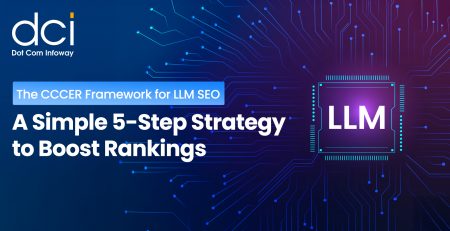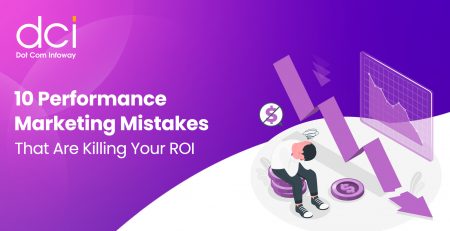The Future of E-Commerce SEO: Key Strategies for 2025 Success
As digital landscapes evolve and e-commerce becomes a core part of our daily lives, SEO strategies are entering a new era. With the rapid growth of online shopping and ever-changing search engine algorithms, staying ahead of the game is not optional—it’s essential for business survival. But what will the future of e-commerce SEO look like in 2025, and how can brands position themselves for sustained growth and visibility? This blog dives into the key strategies that will define the next generation of e-commerce success and offers actionable insights to help your business rank higher and convert better.

Why E-Commerce SEO is More Important Than Ever in 2025
In 2025, the importance of SEO will be driven by one major factor: competition. The e-commerce sector is booming, with more brands vying for digital real estate than ever before. As user behavior evolves, shoppers demand personalized, fast, and seamless experiences. The days of keyword-stuffing and outdated link-building tactics are over. Today’s algorithms reward relevance, user experience, and authority. To meet these demands, businesses will need to adapt their SEO efforts to focus on data-driven insights, technical optimizations, and user intent. Without a clear SEO strategy, even high-quality products can get lost in the shuffle, buried under competitors who understand the power of visibility.
Adapting to AI-Driven Search Algorithms
Artificial intelligence is no longer a future concept—it’s now at the core of search engine ranking mechanisms. Google’s advancements, including AI-powered algorithms like RankBrain and MUM, prioritize search intent and content relevance over traditional ranking signals. By 2025, understanding how these algorithms interpret and deliver search results will be critical to e-commerce success. Retailers must shift from basic keyword targeting to creating comprehensive, value-packed content that satisfies user queries. Structured data markup will also play a vital role in helping search engines understand the context and purpose of content, giving businesses an edge over competitors who rely on outdated practices.
Moreover, zero-click searches are on the rise, where users get answers directly on search results pages without clicking through. For e-commerce sites, this shift means brands need to optimize for featured snippets and knowledge panels. Creating concise, authoritative content that provides instant value is the key to winning these high-visibility spots.
Voice Search Optimization and the Power of Natural Language
As smart speakers, mobile assistants, and IoT devices gain mainstream popularity, voice search is expected to dominate a significant portion of online queries by 2025. Users will increasingly search using natural, conversational language instead of traditional keywords. This means e-commerce SEO strategies must prioritize long-tail keywords and phrases that align with how people speak rather than type. Optimizing for voice search also involves ensuring mobile-friendliness, as most voice searches are conducted on mobile devices.
To prepare for this trend, e-commerce websites should focus on creating FAQ pages and content that answers common customer questions. Voice searches are often question-based, and brands that can provide direct, useful answers will have the upper hand. Furthermore, local SEO will remain a crucial component, as many voice searches include location-based queries like “near me.”
User Experience as an SEO Ranking Factor
Google’s Core Web Vitals update has already set the tone for the future of SEO by emphasizing the importance of page speed, interactivity, and visual stability. By 2025, user experience (UX) will be inseparable from SEO performance. Shoppers expect websites to load quickly, navigate seamlessly, and deliver personalized recommendations. E-commerce brands that ignore these elements risk higher bounce rates and lower conversions.
Optimizing for Core Web Vitals goes beyond page speed—it involves creating a clean, responsive design, compressing images, and reducing server response times. Mobile optimization is non-negotiable, as mobile commerce is predicted to account for more than 70% of total online sales. By focusing on UX, businesses can not only improve their search rankings but also boost customer satisfaction and retention.

Ready to boost your website’s rankings and online visibility?
Discover how our expert SEO services can resolve ranking issues, drive traffic, and elevate your website’s performance to the next level!
Content Marketing and the Role of Video SEO
In 2025, content marketing will be the backbone of successful e-commerce SEO strategies, with video content leading the charge. Video marketing drives higher engagement, longer dwell times, and more social shares, all of which signal search engines that your content is valuable. Brands will need to create diverse content types, including product demos, customer testimonials, how-to guides, and behind-the-scenes footage.
Optimizing video content involves using descriptive titles, adding relevant keywords, and creating transcriptions. Embedding videos on product pages can improve conversion rates, as visual content helps users make more informed purchase decisions. Additionally, hosting videos on YouTube (the world’s second-largest search engine) provides an opportunity to capture search traffic outside of Google’s main search results.
Harnessing Data Analytics and AI Tools
By 2025, data-driven decision-making will be at the heart of e-commerce SEO success. AI-powered tools can analyze user behavior, identify keyword opportunities, and optimize content strategies in real time. Predictive analytics will allow brands to anticipate customer needs and tailor content accordingly.
SEO tools like SEMrush, Ahrefs, and Google Analytics will continue to evolve, providing deeper insights into search performance and competitive analysis. Leveraging this data will help businesses stay agile and respond to changes in search algorithms, market trends, and customer preferences. Those who fail to use data effectively will struggle to maintain visibility in a crowded digital space.
Sustainable SEO: Prioritizing Ethical Practices
The future of SEO isn’t just about ranking—it’s about building sustainable growth through ethical, long-term strategies. In 2025, search engines will penalize manipulative tactics such as buying backlinks or cloaking content. Instead, success will come from authentic link-building, high-quality content, and meaningful engagement with audiences. Brands should invest in partnerships, guest blogging, and influencer collaborations to earn backlinks organically.
Sustainability also extends to environmental consciousness. As consumers become more eco-conscious, search engines may prioritize brands that demonstrate ethical practices. Businesses that incorporate sustainability messaging into their SEO strategy can attract customers and improve brand loyalty while meeting search engine expectations.
Conclusion
The future of e-commerce SEO in 2025 is dynamic, data-driven, and centered on user experience. Brands that embrace emerging technologies, optimize for voice search, and prioritize authentic content will be the ones that thrive. By focusing on sustainable, forward-thinking strategies, your e-commerce site can achieve long-term visibility and success. Start planning today, and you’ll be ahead of the competition tomorrow.















